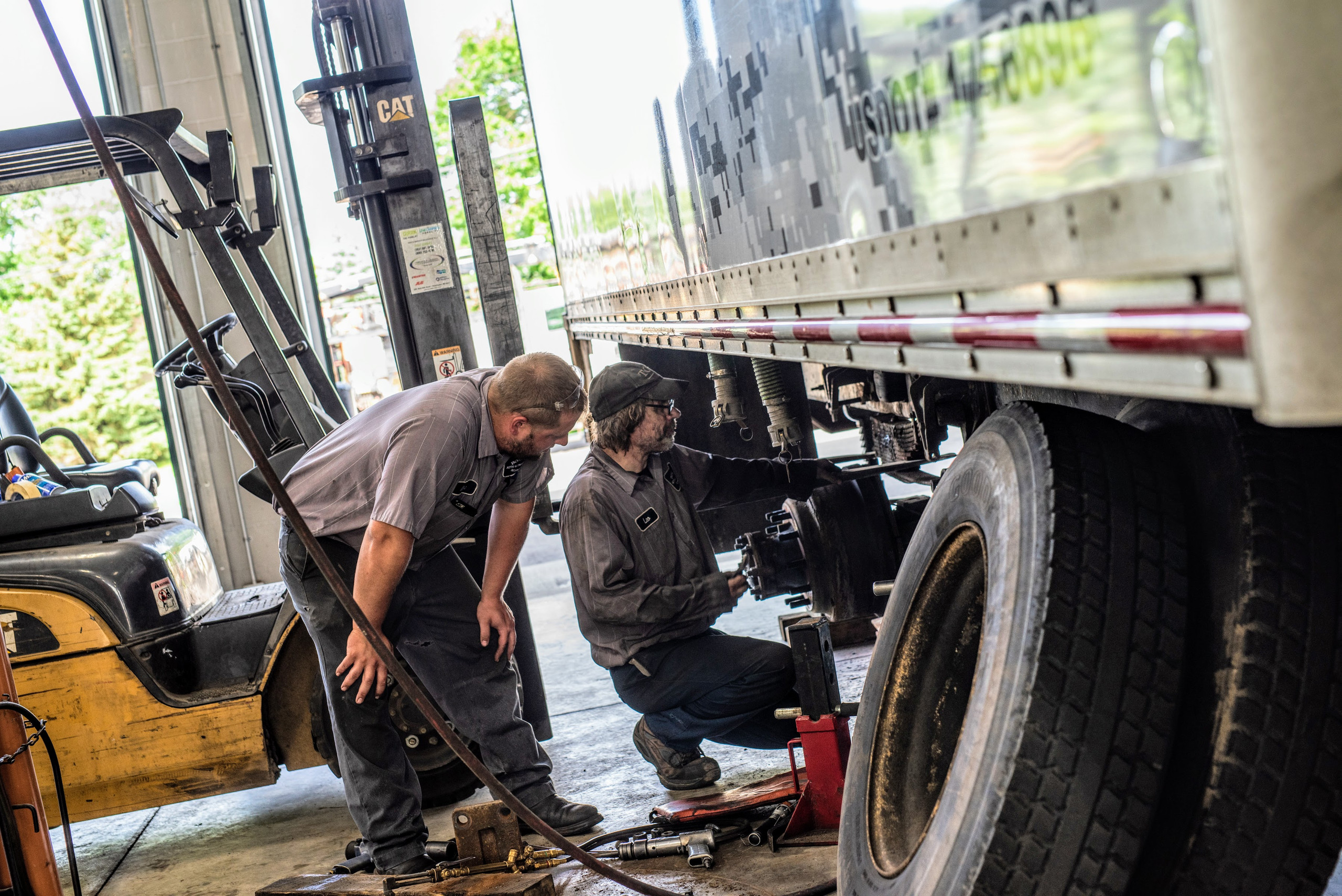
When To Replace Box Truck Tires
Box and dock trucks are versatile vehicles that serve a variety of commercial uses. Let’s look at what determines the longevity of their tires and when to replace them.

When to Replace Box Truck Tires
Box and dock trucks serve a wide variety commercial uses. Companies like UPS use them to transport goods from warehouses to homes while plumbers and other tradesmen are known to outfit them to serve as mobile service vehicles.
They may not haul goods across the country like tractor trailers and semi-trucks but that doesn’t mean their tires are exempt from constant wear and tear. The stopping, starting, and cruising through our city streets and freeways means drivers need to make sure their tires are properly aired up and in proper functioning order.
Usually, box trucks in Roseville, MN last around 100,000 miles or three to seven years, but ultimately, the life span of any heavy duty truck tire depends on the factors we explore below.
Mileage and Tire Type Determine Lifespan

The two primary factors that determine the lifespan of your tires come down to miles driven and the types of tire themselves.
When it comes to mileage, both the amount and type of mileage are important. Obviously, the more miles you drive the sooner you will need to replace your tires. However, if many of those miles are inside of construction zones or along rural roads, these demanding conditions will likely decrease their lifespan.
Also important is the type of tire. ST tires, for example, stand for “Specialty Tire” and are designed to go on trailers and fifth-wheels with a lifetime rating of around 40,000 miles. It’s crucial the correct tire is used based on the application since box trucks and other commercial vehicles have a specific fit, load capacity, and weather rating.
How to extend the life of your tires
Replacing tires are expensive, especially if you have more than just four such as a truck with a tandem axle. The good news is that preventive maintenance of your tires is relatively simple because you can always inspect the tire pressure and other conditions. If you have a handling or suspension issue, the first place we often turn to are the tires for leaks, inflation problems, or other issues that might call for a replacement.
Here are a few tips we pass along to all of our Twin Cities drivers so they can extend the lifespan of their tires:
- Maintain Proper PSI: This is the biggest bang for your buck. Making sure your tires are inflated according to manufacturer specifications preserves your tire’s lifespan, improves handling, and support fuel efficiency. Box trucks have freight whose weight can dramatically change the inflation requirements and this needs to be considered when determining the proper PSI.
- Be Observant: Inspect your tires regularly and ideally before every trip. Many commercial truck drivers even have a pre-trip inspection report that drivers must follow before every work day. IA good rule of thumb is that f a tire regularly dips below 20% of the manufacturer’s recommended PSI, it likely needs to be replaced. Also important to inspect are the valve stems, lug nuts, and sidewalls.
- Watch Wear: All tires will naturally wear away with use. Inspect the wear pattern to see if all tires are wearing evenly. If the rear axle tires wear more than the front, it may be that the freight is being loaded unevenly. If they wear frequently, it’s possible you are hauling more weight than what your tires are rated for. If they are cupped, meaning the tread closest to the sidewall is lower than the middle, it could be a combination of poor alignment or chronically underinflated tires.
If the tires on your box and dock trucks are nearing the end of their useful life, you can trust the expert mechanics at Bona Bros. to replace them according to manufacturer recommendation.
No truck in New Brighton, MN is too small or large for our professional facilities with over 40 bays.
